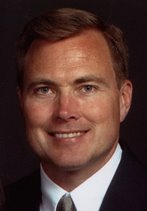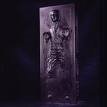 Pr. Weedon suggested Sasse's very fine essay on the whole notion of apostolic succession in the We Confess series published by CPH. I've finished reading it again, and will here give my own brief summary of his arguments.
Pr. Weedon suggested Sasse's very fine essay on the whole notion of apostolic succession in the We Confess series published by CPH. I've finished reading it again, and will here give my own brief summary of his arguments.Sasse begins by pointing out that there are three aspects of "apostolicity" to debate: apostolicitas originis, successionis, doctrinae.
Then he argues that all churches claim apostolicity of origin, pointing out that:
"Whether any church has its origin in the church of the New Testament or not is simply a matter of faith."Ultimately this is a question of apostolicity of doctrine, because:
"The answer has to do with whether I consider the doctrine of my church to be apostolic."Next he destroys the idea that any particular apostolicity of succession can be demonstrated, giving a cursory history of the attempts to create lists and the different purposes those lists were created for. He also quotes the Didache (15:1) which gives advice to congregations in case there are no wandering apostles, prophets, or teachers among them: "Elect therefore for yourselves bishops and deacons worthy of the Lord..."
This alone shows that the emphasis on an unbroken succession of consecration of bishops is a relatively modern construct. Rather, what has always been debated in the church is apostolicity of doctrine.
Sasse spends some time on sola Scriptura in which he acknowledges that Paul speaks of the receiving and passing on of a tradition (1 Cor. 11:23 and 15:3):
In the New Testament we do have tradition in the sense of the message of the Gospel, or some particular message, being faithfully kept and handed on (1 Tim. 6:29), without addition or subtraction (Rev. 22:18-19). This "tradition," however, whether it be the oral proclamation of the apostles or whether it was already written down, has nothing to do with a tradition which was later placed in opposition to Scripture. The apostolic witness cannot be divided into what was preached and what was written down. these are one and the same. The authentic doctrinal tradition of the church in the sense of the New Testament is never anything else that the living transmission of this witness in preaching and instruction. It can never be an independent source of revelation. Authentic apostolic succession, then, is always and only the succession of doctrine. It may be known by its identity with the witness of the apostles in the New Testament. In this way, the content of what is proclaimed by any and every church is to be weighed.And here is where what I wrote in the post below becomes the first principle from which I know that our pastor has apostolicity:
There is indeed also a succession of teachers who have faithfully proclaimed the apostolic message. But who these surely are only God knows, just as He alone "knows those who are His," who are truly His church [2 Tim 2:19].
The question of whether or not a pastor is a valid pastor is answered rightly only by whether or not he preaches the true Gospel. The Augsburg Confession states that the "Church" is found where the Word is preached in its purity and the Sacraments are rightly administered. How do we define pure Word and Sacrament? - that taught and practiced according to the one pure fount and source of God's revelation: SCRIPTURE, interpreted according to the central doctrine of Christianity that separates us from ALL other religions.
What is that central doctrine? That THE ONE TRUE GOD is the God who saved me ALL BY HIMSELF, with no help from me or anybody else. All my sins are imputed to Christ, and all His righteousness is imputed to me. That's the only God I can have faith in! The One with pure monergistic grace - something ALL the other "Christian" denominations deny.
Lutheranism alone teaches the pure monergistic grace of God in Christ Jesus. This is what sets us apart from all others. How do I know the voice of the Shepherd? When I hear Him tell me my sins are forgiven - unconditionally. Anyone who claims to speak the Word of the Shepherd yet preaches a synergistic salvation is a false shepherd. All Roman Catholic priests preach a synergistic salvation. Therefore they are false shepherds - not members of the apostolic succession. The Apostle Paul preached salvation by faith alone, "and this not of yourselves, it is the gift of God."










1 comment:
Thank you for the insight...AMEN.
Post a Comment